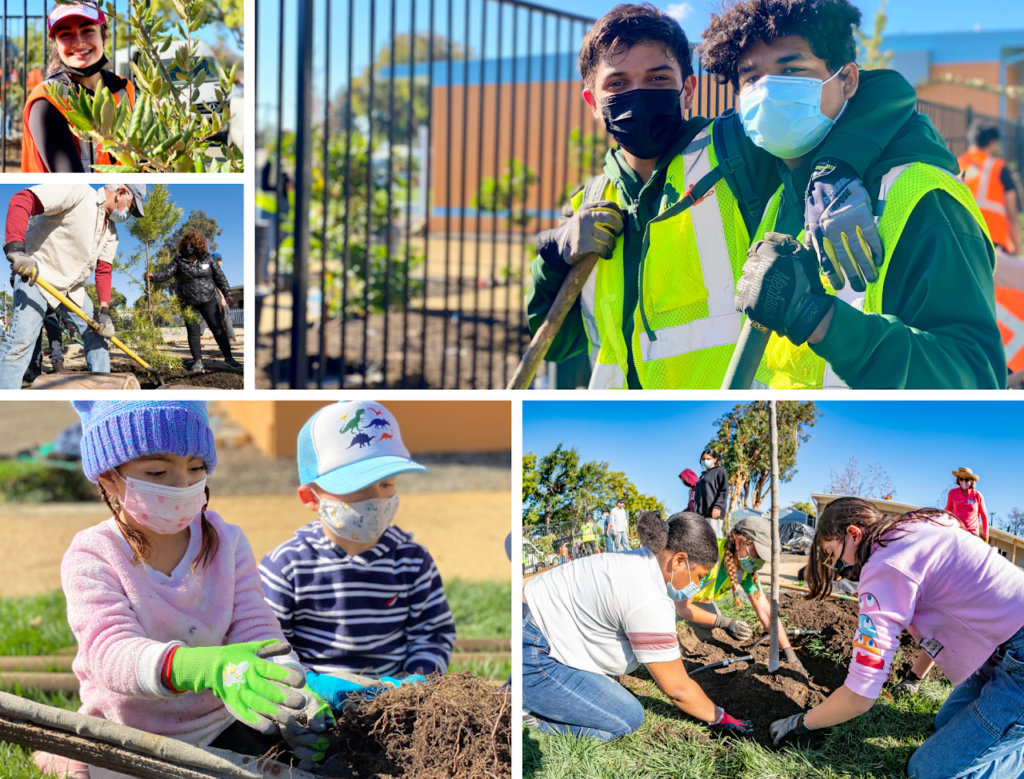
Canopy, una organización sin fines de lucro en el Área de la Bahía, busca que barrios históricamente desfavorecidos tengan una mayor cobertura arbórea para proteger la zona y a todos los que viven en ellas, por lo que ha organizado una reunión en Redwood City para encontrar solución a la falta de árboles.
Y es que, diversas ciudades vulnerables en el área sufren una menor cobertura arbórea en comparación con las zonas más prósperas, lo que provoca una mala calidad del aire y del agua, así como un mayor riesgo de calor, ruido e inundaciones.
En respuesta a este desafío crítico, Canopy, la cual está dedicada a la silvicultura urbana, está abordando el problema y promoviendo la equidad de cobertura arbórea en el condado de San Mateo.
El condado de San Mateo enfrenta disparidades significativas en la cobertura de árboles que crean desigualdades ambientales y sociales, particularmente en vecindarios históricamente desatendidos. East Palo Alto tiene una cubierta de dosel de árboles de solo el 13.5 por ciento, mientras que Atherton tiene una cubierta de dosel de árboles del 51.2 por ciento.
En el evento, que tendrá lugar este próximo miércoles 24 de mayo de 14:30 a 16:00 horas en el Espacio Comunitario de la Iniciativa Chan Zuckerberg, ubicado en el 801 de Jefferson Ave en Redwood City, se busca que los residentes aprendan a abogar por que los gobiernos locales involucren activamente a las comunidades en la gestión de la cubierta vegetal, creando un entorno más justo y equitativo para todos.
Además, se proporcionarán conocimientos y recursos para capacitar a los residentes, aumentando su comprensión de la silvicultura urbana y fomentando la participación activa en iniciativas vitales de conservación.
Al evento se sumará la experta Maya Briones, defensora asociada de Canopy, quien ha coordinado programas de plantación de árboles y administración en East Palo Alto.
Antes de Canopy, Maya investigó la eficacia del Programa de Reemplazo de Árboles del Condado de San Mateo como pasante de planificación. Es coautora de una investigación publicada sobre el acceso a los espacios verdes y, en el futuro, espera seguir investigando cuestiones de justicia ambiental en la escuela de posgrado.
Es graduada del programa de Estudios Ambientales de la Universidad Estatal de San José, donde se centró en la restauración del hábitat y la gestión de recursos, con una especialización en Estudios Mexicano-Americanos.
Actualmente, Maya es estudiante de posgrado en la Escuela de Estudios Ambientales de la Universidad Estatal de San José.
Cabe resaltar que la asistencia a este evento es totalmente gratuita, pero es necesario inscribirse. Además de que las personas también podrán acceder al evento a través de la plataforma virtual Zoom, donde habrá traducción simultánea a idioma español.
Te puede interesar: Berkeley tendrá nueva facultad, la primera en 50 años

